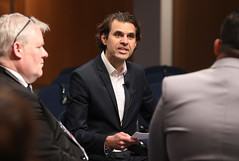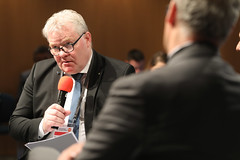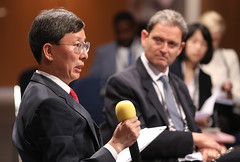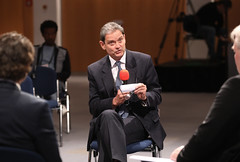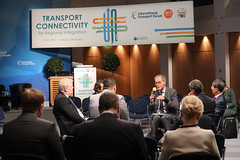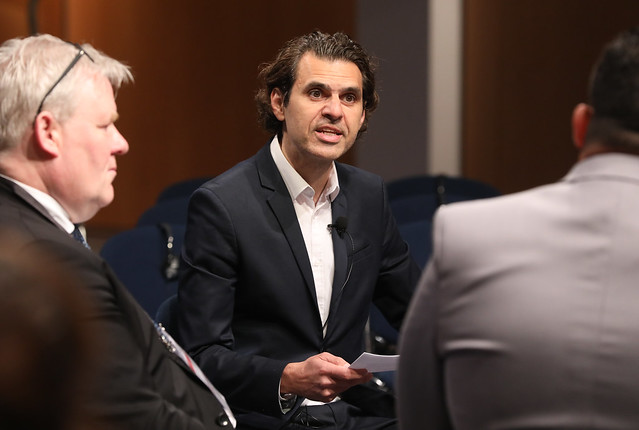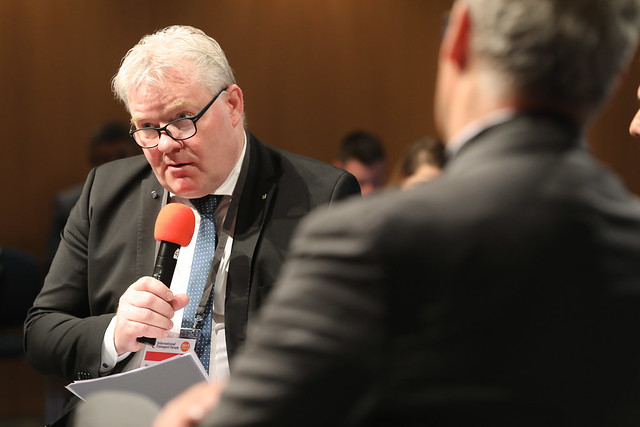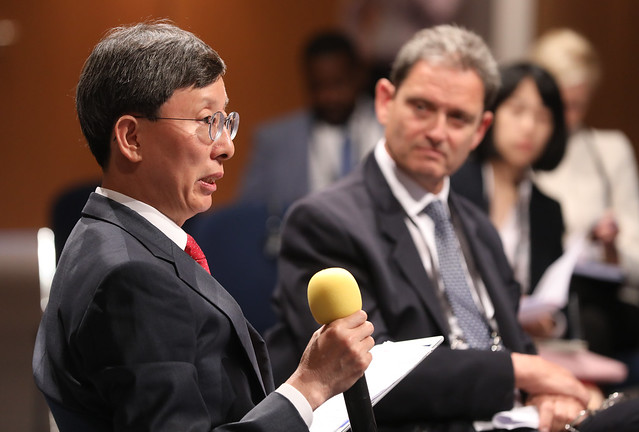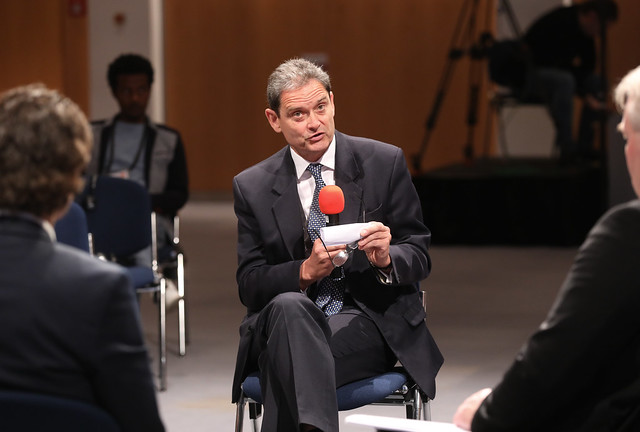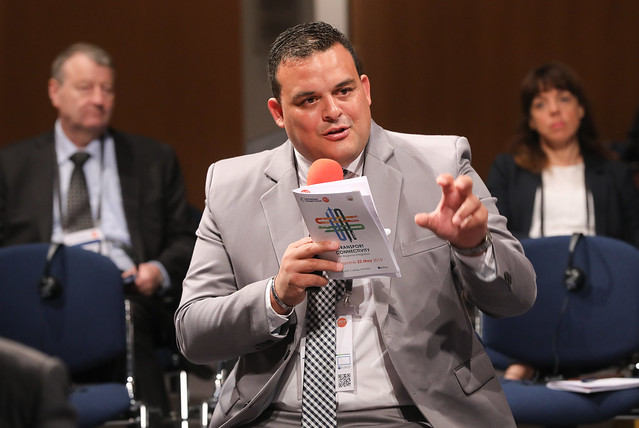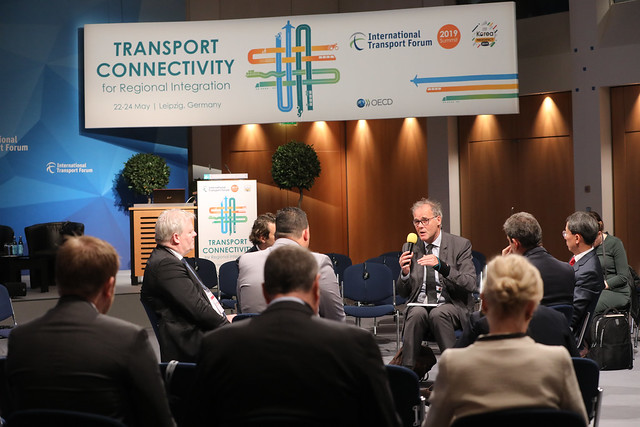The session focused on the role and the impact of transport in tourism and sustainable development. A geographically diverse panel comprising Sigurður Ingi Jóhannsson, the Minister of Transport and Local Government of Iceland, Jaehak Oh, the president of the Korea Transport Institute (KOTI), Alain Dupeyras from the OECD, Adrian Gane, the director of Government and Industry Affairs at Etihad Airways and Angus McKenzie, counselor of the city of Cape Town, South Africa discussed the synergies and issues between transport and tourism, the importance of tourism for regional development, and the challenges facing cities, regions and countries.
A short “setting the scene” presentation, given by Alain Dupeyras of the OECD, started the session. Tourism demand has grown rapidly in recent decades and this growth is expected to continue. Transport is an essential enabler of tourism and the location, capacity and efficiency of transport systems are key factors. Multimodality and seamless transport integration facilitate tourism movements, creating a more positive and enjoyable environment for visitors. Sustainability should always be a central consideration, as there are many ways to promote and increase tourism without the negative effects that may come with it.
The discussion between the panelists focused on these issues and on sharing their local experiences and current policy priorities. Iceland has experienced massive growth in tourism in the last decade. This has put infrastructure under strain, requiring large investments in improvement and maintenance. The challenge is to find sustainable funding to meet this demand. The city of Cape Town faces a similar challenge, trying to balance the limited transport infrastructure resulting from legacy decisions with growing transport demand, both from locals and tourists. The MyCiti bus system has been developed in an effort to provide mobility options rapidly, both for local residents and tourists.
In Korea, development of an extensive high speed rail system has promoted domestic and international tourism and business across the country, essentially transforming the country into a single mega-city. Korea’s regional capitals have all seen a return to healthy growth in this sector, balancing the attraction of Seoul. The high speed rail system has been bolstered by a number of policy decisions intended to augment its positive impacts, most importantly developing intermodal transfer hubs at stations for integration with local and regional public transport networks. For Abu-Dhabi, Etihad Airlines has served as the key enabler of tourism. Etihad, and the airline industry in general, are very focused on the sustainability of aviation. Investing in bio-fuel, fuel-efficient aircraft and new technologies are some of the ways in which the industry is seeking to limit the environmental impacts of aviation.
The discussions concluded that tourism has an important role to play in regional development and that, to facilitate that, a wide range of stakeholders, including those from all levels of government, should be consulted and brought into policy decision-making. Efficient, integrated transport systems can facilitate and disperse tourism growth across regions, sharing benefits and alleviating the negative side-effects of over-concentrated activity in the most popular destinations.
The regional and local structures that govern tourism and transport need to be strengthened. In order to cope with the expected growth successfully and sustainably, transport, tourism, regional and rural policies need to be consistent and mutually supportive.
Speakers
Speakers

Alain Dupeyras
Head of the Regional Development and Tourism Division
Organisation for Economic Co-operation and Development (OECD)





